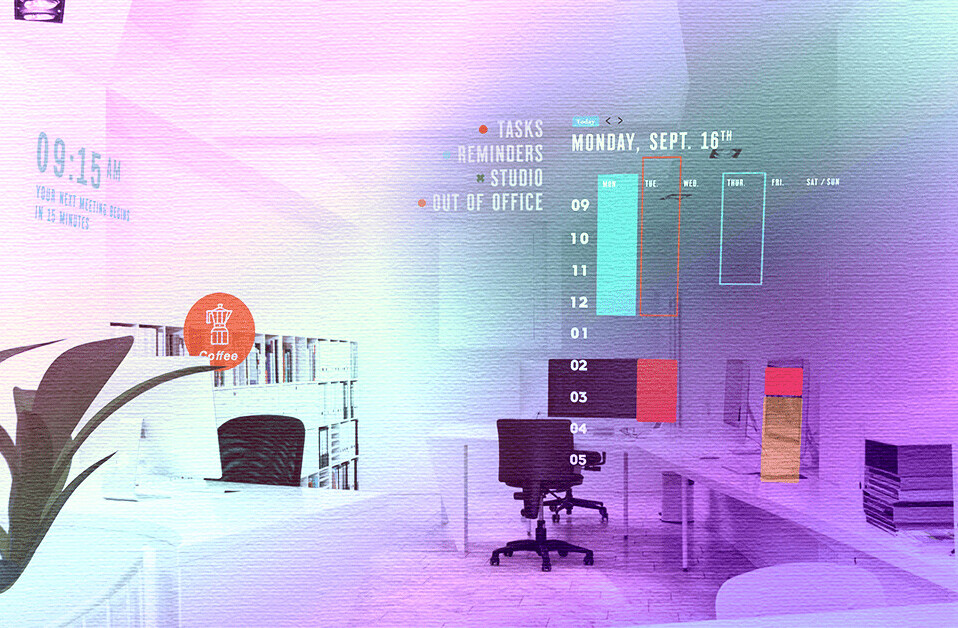
As a corporate innovator, it’s my job to lead transformational change and build new businesses in big, complex, corporations. For more than 30 years, I’ve worked in Silicon Valley, focusing on the intersection of digital evolution, emerging technologies, human-centered design, and business growth strategy.
Yes – and… I’m also a seasoned improviser. For 15 years I’ve been part of a performing troupe in Northern California called Subject to Change. Improv is all about letting go and discovering. The key is being comfortable in not knowing. Being on stage with no script, no props, and a promise to create something is a scary ride, but it’s one I love.
People often ask me how I bring my improv skills into the work I do. Improv has a set of ground rules that define how you work together when there is pressure, uncertainty, and a need to deliver in real time. Here are three skills that I use in the course of my work every day.
Listen exquisitely: Be in the moment
Everyone has heard of the improv rule, “yes, and…” This is about being generative, about adding and not blocking great ideas. The first step is to exquisitely listen. When we perform improv we need to pay attention to what our fellow actors are saying and doing – and support it. In improv, every line, gesture and facial expression is an “offer.” They give us clues to characters, places, feelings, and the story as it unfolds. We actively empathize with each other, so we create emotional reality. We watch and listen intently to one another, seeing every offer as a gift.
In business, this means being in a state of curiosity, and recognizing that the answers are outside of you. How often have you been in a meeting and someone is articulating a nuanced concept and the first person to respond says, “Let me go back to the first thing you said…” That usually means they stopped listening after the first sentence when they had formed their reaction. Think of what they probably missed by not listening fully.
Exquisite listening comes from shutting down your head, your judgment, and not planning your response while listening. You become a little more aware, a little bit more present. When you give people the time and space they need to convey their ideas, then you can add to what they said — it validates them; they feel heard. That’s a gift too.
Every day at work, there are countless chances to slow down and listen, to concentrate on one person at a time and make them feel fully listened to. We will discover more when we truly listen more.
Believe in yourself: Stare fear and failure in the face
Every time I do improv on stage I face epic, humiliating failure. And there are always plenty of awkward, embarrassing moments. There is tremendous beauty as well. It’s such a rush when it works. What I’ve learned is to not fear the empty space, the silent moment where “I’ve got nuthin.”
I’ve learned to trust that, in the moment, I will have what I need – that my brain, my heart, my fellow actors – will come through. And that is where the most magical moments happen – in the unplanned spontaneity that is improv.
So make space for more spontaneity at work. Prepare less and be in the moment more. Create the white space for you and your team to connect and discover. Stop over-preparing and trust that your brain and your heart will deliver for you if they have the space to do so.
When you allow for more curiosity and spontaneity, you’re being more authentic. That’s what leads to more effective collaboration, exploration, and discovery.
Selfless generosity: Make your partners look good
Most people think improv is about hilarious zingers that get the laugh. Sometimes that’s true. I’ve noticed, however, that the laughter usually comes from the humanity and the real-life truth that emerges in the stories we create. We laugh when we recognize a little bit of our own selves, our own lives, and our own humanity.
For improv to work, we need to move to the same beat, finding our way to a story when no one is leading. This works when we focus on selflessly making offers, to “make our partners look good.” Improv is about making choices that help your partner succeed. We recognize that the story, the magic, the creation, exist between the actors – not with any single one of them. That means that you have to let go and selflessly give to your partners – and trust that they are doing the same for you.
Imagine that at work. Imagine if you knew that everyone you work with every day was focused on making you be successful, on making you look good – and that your mission every day was to do the same for everyone you work with. Imagine the creative, innovative, transformational potential of that.
Bringing that level of trust and whole-hearted generosity to work is rare, but where it’s found, it’s transformational. When I practice improv I practice being selfless, trusting, open and generous. I believe that bringing improv skills and practices to work can unleash collaboration, creation, and discovery in those unplanned, unprepared white spaces. Yes – and…
Get the TNW newsletter
Get the most important tech news in your inbox each week.




